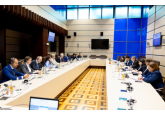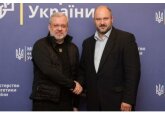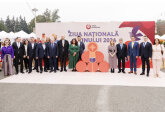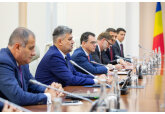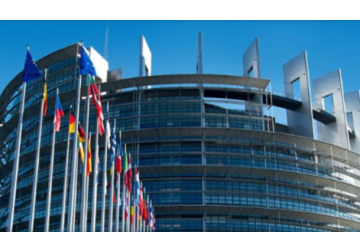
Moldova is a strategic partner and future member of the European Union and the EU will continue to support it on this path
EU High Representative for Foreign Affairs and Security Policy, Josep Borrell, and European Commission Vice-President for Values and Transparency, Vera Jourova, stated this while speaking in the European Parliament in the context of the debate on the resolution on Moldova. They said that this debate underlines the importance of the EU's relations with Moldova, a strategic partner and future member of the European Union, and is an opportunity to recognize Moldova's significant efforts to counter threats and challenges resulting from Russia's aggressive war against Ukraine, as well as to counter Russia's direct attempts to destabilize the country. It was emphasized that Moldova and its people show that they have what it takes to win. High-ranking representatives of the European Commission pointed out that the EU's relations with Moldova are at an all-time high. Despite threats to democracy from Russia, Moldova's commitment to the EU membership path has been remarkable, culminating in the start of accession talks in June. As noted, Moldova should seize the moment and continue implementing reforms, and the current debate in the European Parliament provides a valuable opportunity to send a clear message: Moldova can count on EU support on the path of reforms. Josep Borrell and Vera Jourova pointed out that as the presidential elections and the referendum on EU membership approach, it is clear to see how Russia is stepping up its hybrid attacks on Moldova's democracy and stability in order to thwart Moldova's efforts to integrate into the EU and bring the country back into its sphere of influence. A key part of this strategy is the Russian disinformation campaign that specifically aims to make the referendum discredit the government's pro-European policies by falsely portraying a lack of popular support for European integration. It was emphasized that Moscow's malicious activities are aimed at exploiting differences in Moldovan society, spreading propaganda among the Russian-speaking population, and attempting to use the ambitions of the Transnistrian region and Gagauzia against the central authorities. To help Moldova strengthen its resilience and help its institutions effectively address these challenges, the EU has significantly increased its support. It was noted that the EU security and defense cooperation reached a new level with the creation of the Security and Defence Partnership. Moldova became the first country to sign the Security and Defence Partnership with the EU. This partnership offers a sound political basis for enhancing existing cooperation and exploring possibilities for further interaction. Since last year, the EU Partnership Mission has been assisting Moldovan institutions in building resilience. In connection with the upcoming elections and referendum, the Mission is providing targeted support to improve cyber security and combat illicit financial flows, as well as manipulation and interference with external information. Under the European Peace Facility, the EU has allocated €137 million to strengthen Moldova's armed forces from 2021, making Moldova the second largest recipient of bilateral European Peace Facility support after Ukraine. In addition, in 2023, the EU established a sanctions regime against those who seek to destabilize Moldova. European Commission representatives said that when it comes to the Transnistrian region, it is important to emphasize that Moldova's European future cannot become hostage to an unresolved conflict. According to them, although EU accession and conflict settlement are two different processes, every effort should be made to ensure that the entire Moldovan population, including the inhabitants of the Transnistrian region, fully benefit from the EU integration. Josep Borrell and Vera Jourova welcomed the European Parliament's intention to adopt a resolution recognizing the problems faced by Moldova due to Russia's intensive hybrid war and reiterating the strong support for Moldova's integration into the European Union, noting that the resolution also rightly underlines the need to continue the EU's assistance to Moldova in these difficult times. As noted, despite the challenges, the Moldovan government remains committed to reforms that will bring the country closer to EU membership and it is crucial that the EU continues to support Moldova and adhere to its own commitments. “The upcoming elections and referendum on European Union membership are a key opportunity for the people of Moldova to make their voices heard. Moldova belongs to Europe and we will continue to support its path to the European Union,” senior European Commission officials said. // 09.10.2024 – InfoMarket



